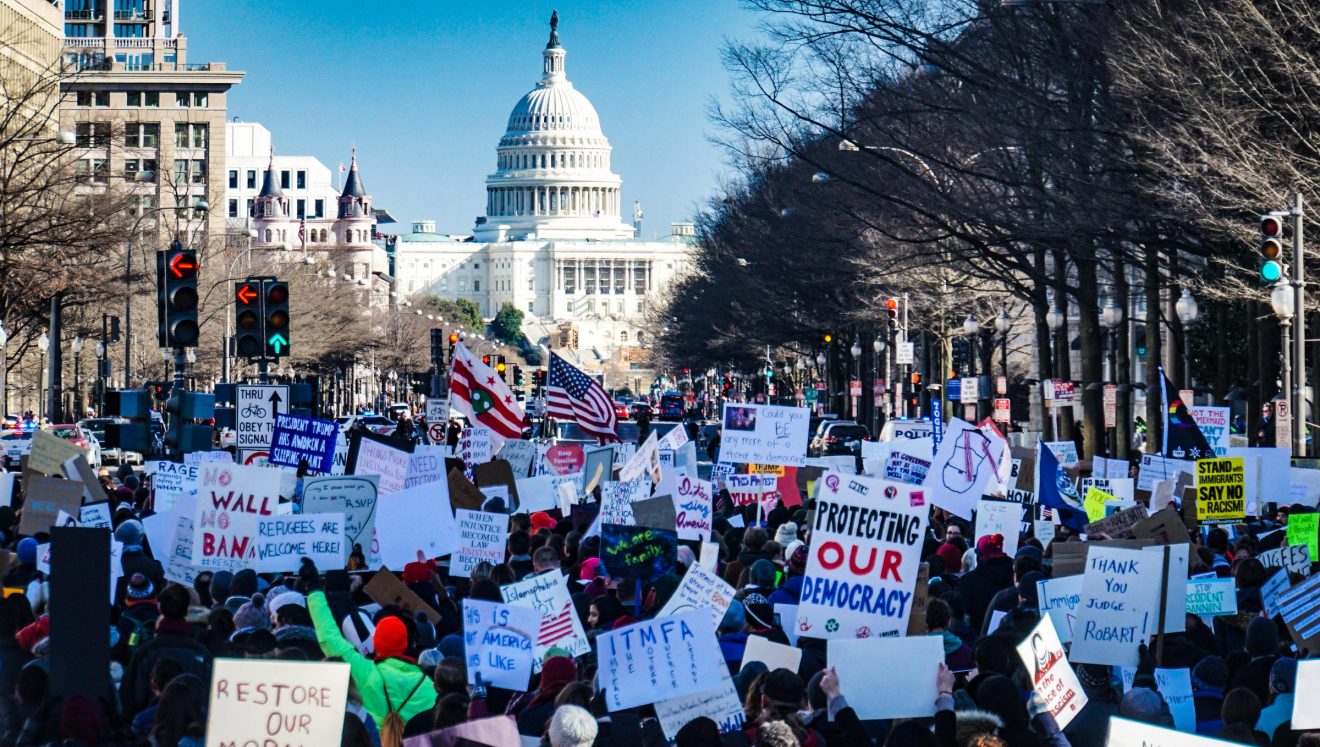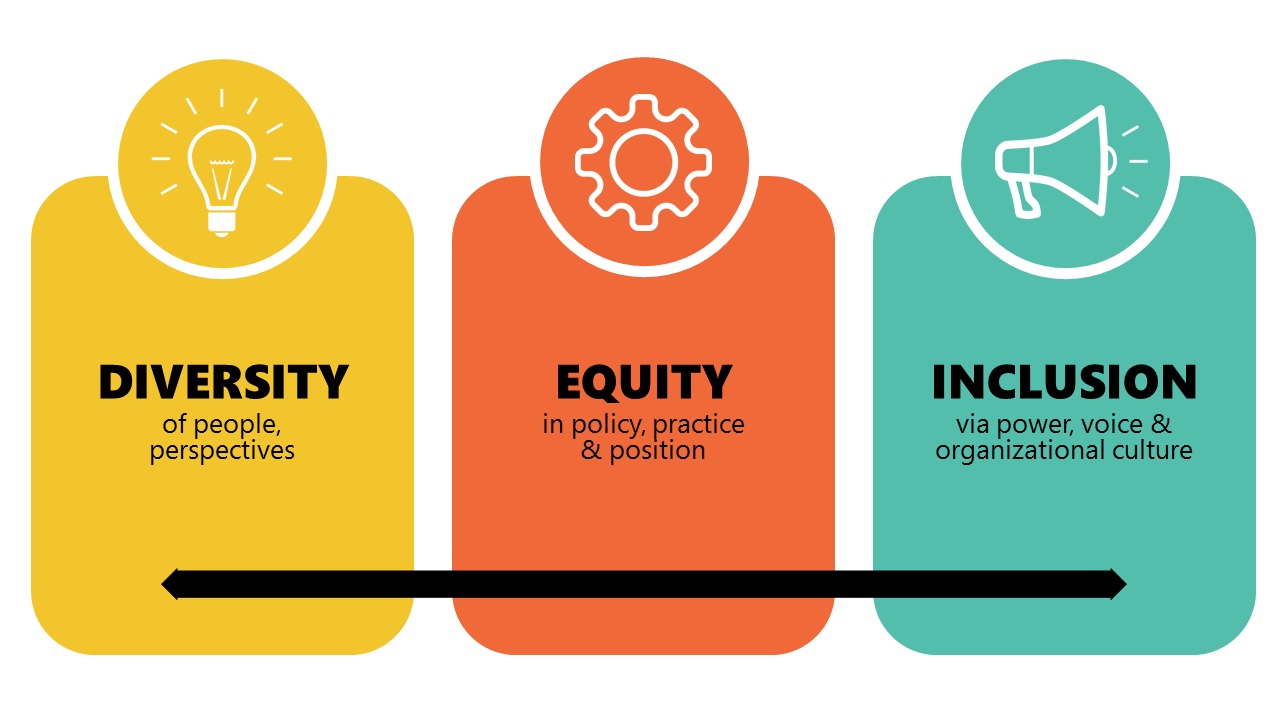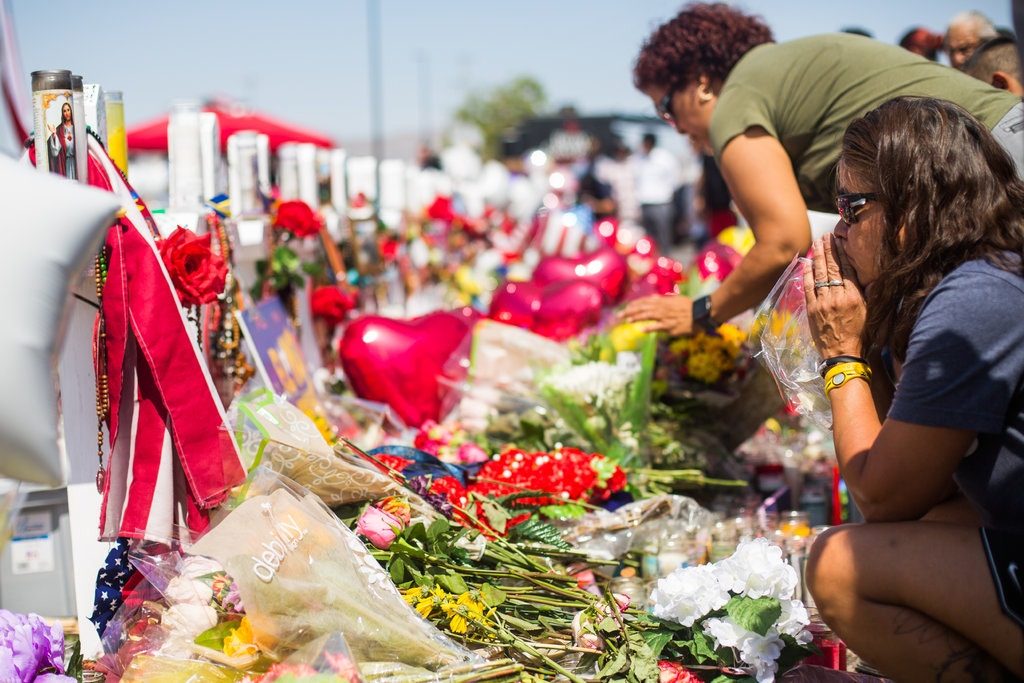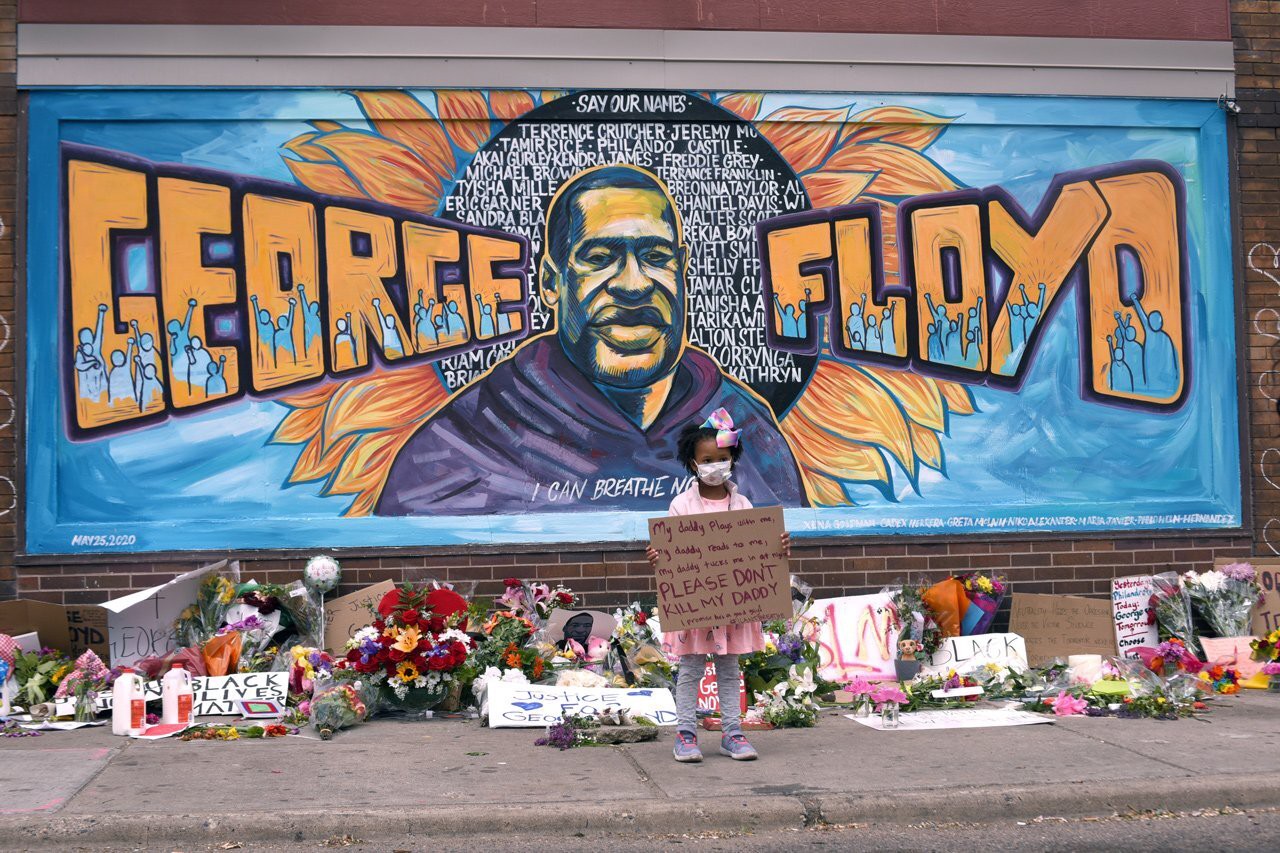|
|
|

|
Welcome to Week 5 of Be the Change!
This week my thoughts are on the ever-present issue of racism in America. I am saddened and angry about the recent mass shooting in Atlanta, which is part of a wave of anti-Asian hate crimes and fits into a broader pattern of rising extremism in the country. Below you will find an essay about what I see is wrong with so-called "DEI" efforts as a means of addressing racial and gender inequality; a poem about two mass shootings in 2019; and a poem in honor of George Floyd.
|
|
If you enjoyed this, please forward to your friends and ask them to sign up too.
|
|
|
|
|
|
The Problem With Diversity, Equity & Inclusion ("DEI")
|
|
|

|
Nowadays, especially in the wake of last summer's police murder of George Floyd and the subsequent global protests, you can hardly take a (virtual) step without running into some mention of DEI, or Diversity, Equity, and Inclusion. DEI is a kind of catchall for anything to do with addressing racial and gender inequities, especially in the workplace. There are DEI consultants, trainings, initiatives, and webinars / conferences, all aiming to tackle deep-seated injustices in our society and economy. In 2017 alone, businesses spent $8 billion on diversity trainings; it isn't uncommon for a nonprofit with a small budget to spend $25,000 or more for a consultant to help the organization create a DEI plan, run a training, and so on. And larger companies are spending millions of dollars, not only on consultants but also on Chief Diversity Officers, marketing campaigns to tout their diversity, and more.
|
I take no issue whatsoever with the focus on reversing the longstanting, structural racial and gender biases which for centuries have marginalized and oppressed communities of color, women, and others. Indeed, part of the impetus for my founding Capital Good Fund was that I saw an opportunity to use financial services to right some of these wrongs. Rather, the problem I have with DEI is that it trivializes both the people it seeks to uplift and the underlying injustices it seeks to address, all while giving the appearance of taking meaningful action--without having to do so.
|
I recently saw this firsthand. Capital Good Fund is hiring for a new position, and it's really important that this be a diverse hire: while the majority of our staff are non-white, the higher up the org chart you go, the more white we become. We need people with different backgrounds, perspectives, and life experiences in leadership roles, so we went searching for a recruitment firm that specializes in sourcing a diverse candidate pool. One of the first companies we came across has a name which clearly proclaims that the company is focused on diversity (I will omit their name here). In case the name didn't get the point across, their website prominently touts that they are a minority-owned firm.
|
My HR Manager and I got on a call with their team to learn more, and upon joining the call we were immediately struck by the fact that a company which goes to such great lengths to brand itself as diverse sent four white people to the introductory meeting. As if to answer the unspoken question about how this jibed with their supposed attention to diversity, one of the first points they made was that they are minority-owned; apparently, bringing that up is part of their sales pitch. After the call, I went onto LinkedIn and scrolled through the company's 400+ staff. As best I could tell, no more than a handful of the employees are non-white.
|
This isn't an anomaly. So much of what people do around DEI is window-dressing. Worse, there is evidence to show that DEI can cause "unintended and lasting harm" and ignite "frustration and disappointment," such as "when a 'diversity hire' ends up not working out." DEI also makes minorities and women feel singled out and tokenized. My wife, who is Latina, has experienced this in her work in the biotech industry. After endless meetings and trainings about DEI, she finds herself exhausted by the topic. To her, it can sometimes seem as if management is going to great lengths to treat her like an exotic and delicate flower; other times, she wonders if it's just about PR or avoiding a lawsuit. One night she said to me, "You know, instead of talking about this stuff, why don't they just hire more women and people of color in leadership positions?"
|
I couldn't agree more. One of the most importants ways to deal with racial and gender inequality is to have women and minorities in positions of power--not token roles, not "diversity hires," but roles with real authority--and to have a legal framework that provides powerful protections against discrimination, harassment, retaliation, and more. This isn't to say that as a nation we don't need to deal with racism and sexism in other ways; the aforementioned spike in hate crimes against Asian Americans is yet another example of the serious soul-searching we need to do. The question is whether, and to what extent, DEI can lead to meaningful change.
|
I've personally never taken away anything of value from the numerous DEI trainings I've had to sit through. Sure, I can expound upon the difference between conscious and unconscious bias, but for a Latina like my wife, and I'm sure for many other people of color and women, what matters isn't the academic study of bias but rather the more equal distribution of power.
|
Sadly, it seems that far too often the more a company spends on trainings, the less compelled it feels to make meaningful change--like hiring executives of color, working with minority suppliers, eliminating bias in their business practices, and delivering equitable products and services that uplift, rather than oppress or prey upon, minority communities. Anything else is either a profitable scam, an empty marketing campaign, or an elaborate distraction. As a case in point, consider the cognitive dissonance induced by the juxtaposition between Nike's campaign in support of Colin Kaepernick and their inhumane treatment of workers of color, especially in foreign factories. (I wrote about this in an essay called Questions on Nike, Colin Kaepernick, and Corporate Social Responsibility.) Another example are the dozens of companies that have been shouting Black Lives Matter from the rooftops, all while making corporate contributions to elected officials that support stripping away voting rights from Black voters. It's easy to put up a yard sign. It's another thing entirely to put one's money and heart where one's mouth is.
|
In short, I fear that, in the main, DEI is designed to make white people feel less guilty without giving up any of the unearned power that our whiteness affords us.
|
|
|
|

|
Waiting in Line to Donate Blood After A Mass Shooting
|
This is where we come together,
not before but after:
The blood already drained, we refill it;
we never lack for blood to give.
|
It is hot and volunteers bring water,
or cold and they bring coats.
Amnesiacs improvise memorials,
and even arid soils sprout flowers
held in vases of denuded blood—
we are generous in our way.
|
Where else but here and in the armed forces
does nothing matter—
not race, not gender, not religion—
save one’s ability to proffer blood?
|
Like a hundred-million others, I wait,
sleeves rolled up bearing veins
plump like unpicked fruit:
How does so much bounty go to rot
time after time after time?
|
The dead and the dying do not care.
Their blood indicts me,
they demand repentance or conviction
as they slip six feet under an endless land
whose rulers have never spared
even 40 acres and a mule…
|
I go to bed woozy, haunted again by corpses
and by that old abolitionist saying:
|
“Peace if possible,
Justice at any cost.”
|
|
Written Sunday, August 4, 2019 in response to shootings in El Paso and Dayton the day before
|
|
|
|

|
Helium
|
His Momma died 18 months ago. For Mother’s Day,
he bought one of those shiny Mylar helium balloons
and some Carnations. It wasn’t easy to do, between shifts
at work and wearing a mask to the store—it’s dangerous
for a Black man to protect himself against a virus—
but he wanted to honor the woman who,
in spite of the odds, had kept him alive.
|
He tied the balloon to a vase on the kitchen table
where they used to listen to music and cook dinner.
When the store clerk was filling it, he
stifled a laugh-turned-cry, remembering that birthday
when she got him 20 balloons and one-by-one
they inhaled the noble gas,
nearly dying of laughter at their squeaky voices.
|
Leaving for the final time, he caught his reflection
in the Mylar. Hours later, dying beneath a cop’s knee,
he called out for Momma.
The last thing he saw was the joy in her eyes.
|
Back home the flowers have wilted and the balloon,
twisting slowly in the now-stale air,
sinks lower and lower to the ground.
|
|
|
|
Thank you for reading. I welcome your feedback and suggestions for future posts.
|
|
|
|

|
|
|
|